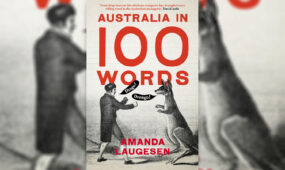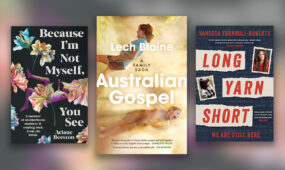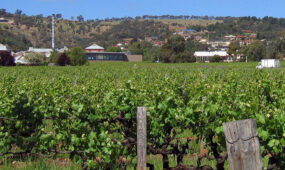The Blind Man’s Garden
Books & Poetry

Set in post 9-11 Pakistan and Afghanistan, The Blind Man’s Garden follows two lifelong friends Jeo and Mikal and their families, who are forced to realised that there is no such thing as “good guys”.
What begins as a philanthropic urge to aide injured civilians in Afghanistan during the Afghani-US war quickly turns into a forced role in warfare and an issue of allegiance for survival’s sake. The Americans are hungry for revenge and the Afghanis are labelling their own innocents as terrorists in return for the almighty American dollar. Jeo and Mikal realise that fighting for one side is as bad as fighting against the other, and it is not their war.
In The Blind Man’s Garden Nadeem Aslam deals with torture, murder and betrayal in an unbiased and level-headed manner that means great tragedies are not over dramatised. His skill seems to be avoiding emotional build-ups and therefore taking away the romantic notions of war. Readers become somewhat numbed to political casualties: a parent’s loss, a lover’s loss, a child’s loss.
Though his avoidance of sentimentality means the story’s pace is that of a slow-burn, in the end it is a bold and powerful move. That the events are simply what happens drills home the point that no one wins in a war; not the idealistic revolutionaries too young to be martyrs (though still they try), not the uniformed patriots with years of righteous anger, and certainly not those lovers and parents and children who have to live through their losses. An example of this is when Jeo’s mother-in-law Tara and her sister-in-law Yasmin go to the graveyard to mourn their newly murdered brother and they are beaten by fellow – though extremist – female Muslims:
‘Women are not allowed into graveyards,’ one of them shouts and swings at
Yasmin’s head with the metal-tipped cane. ‘It’s because of people like you,’ the other veiled woman says as she strikes Tara in the stomach, ‘that Allah is punishing the entire Muslim world these days.
Just as quickly as the horror of the situation builds, it falls away:
‘What strange times are these,’ says Tara as they wend their way through the dead to safety,’ when Muslims must fear other Muslims’.
There is a sense of calm in her words, which sum up a violent event. And in the following sentence, without even a space in the text to delineate a time-change, we are back at Yasmin’s home, breathing in a measured pattern. This is simply what happens.

Get InReview in your inbox – free each Saturday. Local arts and culture – covered.
Thanks for signing up to the InReview newsletter.
Aslam’s sparse style could work against the reader, creating distance some might not get beyond, particularly as we so often crave pathos in our fiction, but it is what drew me into the narrative.
The Blind Man’s Garden by Nadeem Aslam was published by Allen & Unwin $36.99
Support local arts journalism
Your support will help us continue the important work of InReview in publishing free professional journalism that celebrates, interrogates and amplifies arts and culture in South Australia.
Donate Here






Comments
Show comments Hide comments